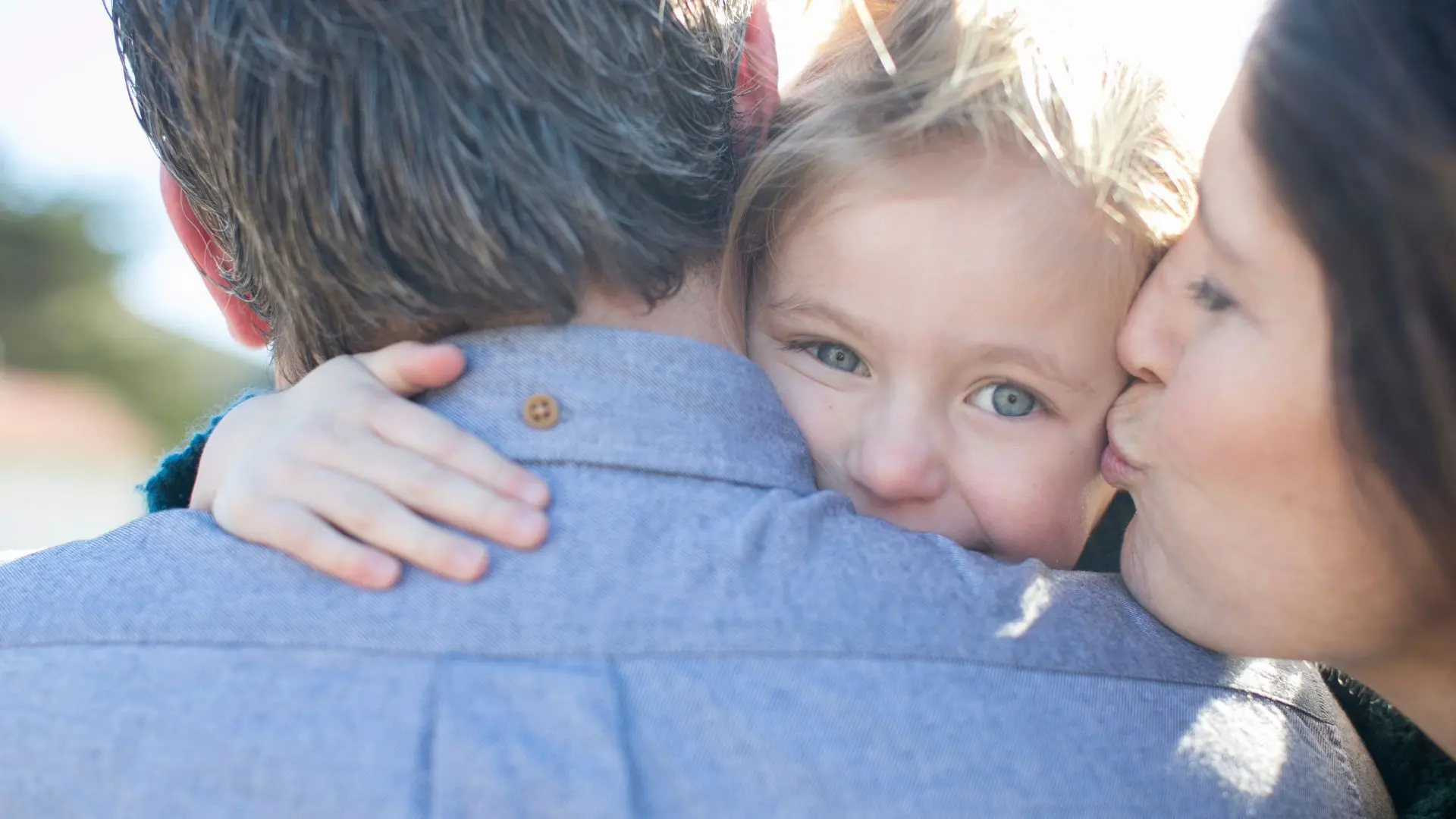The preschooler years are critical. Discover expert-backed solutions to prevent trauma and ensure your preschooler’s healthy development.

The preschooler age, typically between 3 to 5 years, is a crucial period in your child’s development. At this age, your preschooler’s brain is forming more than 1 million neural connections every second. These connections are the foundation for future learning, behavior, and health.
According to the CDC, about 1 in 6 children aged 2 to 8 in the U.S. have a diagnosed mental, behavioral, or developmental disorder. Many of these issues can be traced back to experiences during the preschooler years. This age is not only critical for development but also a hub of potential trauma that can have lasting effects.
Top 8 Reasons Why Preschooler Age Is the Most Critical One
1. The Rapid Brain Development During Preschool Years
The preschooler’s brain is in a state of rapid growth, making it highly sensitive to experiences. Brain plasticity, the brain’s ability to change and adapt, is at its peak during these years. Positive experiences like engaging in play and nurturing relationships help strengthen neural connections.
However, trauma during the preschooler years can disrupt these connections, leading to cognitive and emotional challenges that may persist into adulthood. For example, chronic stress can impair the development of brain regions responsible for emotional regulation and memory.
2. Formation of Core Personality Traits and Emotional Regulation
During the preschooler years, children begin to form their sense of self. This is when core personality traits are established, and emotional regulation skills start to develop. A supportive environment fosters a positive self-concept, while trauma can distort a preschooler’s view of themselves.

For instance, a preschooler who experiences neglect may develop low self-esteem, affecting their future relationships and academic success. Trauma during this time can also lead to the development of maladaptive personality traits, which may manifest as anxiety or aggressive behavior later in life.
3. Attachment and Social Skills Development in Preschoolers
The preschooler age is critical for developing attachment and social skills. Secure attachment, formed through consistent and nurturing caregiving, is essential for healthy social and emotional development. Preschoolers with secure attachments are more likely to have positive relationships and fewer behavioral issues.
Conversely, trauma during the preschooler years, such as exposure to domestic violence, can lead to difficulties in forming friendships and increased social anxiety. These early experiences can have long-lasting effects on a child’s ability to interact with others.
4. Language and Cognitive Development in Preschoolers
Language and cognitive development rapidly progress during the preschool years. This is a critical period for acquiring language skills and developing problem-solving abilities. A preschooler exposed to a language-rich environment typically has better vocabulary and reading skills.
However, trauma can disrupt this development, leading to delays in language acquisition and cognitive challenges. For example, a preschooler who experiences verbal abuse may develop speech delays, impacting their academic performance and social interactions.
5. Emotional Sensitivity and Memory Formation in Preschoolers
Preschoolers are highly emotionally sensitive, and the experiences they have now can leave lasting imprints on their memory. This age is when children begin to form long-term memories, and their emotional experiences are deeply influential.
A preschooler exposed to consistent nurturing is more likely to develop healthy emotional regulation skills. In contrast, trauma, such as emotional neglect, can result in difficulties managing emotions and increase the risk of mental health issues like anxiety or depression in later life.
6. Critical Period for Behavior and Habit Formation
The preschool age is when behavior patterns and habits start to take root. Positive reinforcement during this time helps establish good behaviors that can last a lifetime. However, trauma can lead to the development of negative behaviors, such as aggression or withdrawal, which can be difficult to change later on.

For example, a preschooler who witnesses frequent parental conflict may develop aggressive behaviors as a coping mechanism, which could persist into adulthood if not addressed early.
7. Vulnerability to Trauma in Preschool Years
Preschoolers are particularly vulnerable to trauma because they are highly dependent on their caregivers for emotional and physical support. They lack the cognitive maturity to understand or process traumatic experiences fully.
When trauma occurs, such as through neglect or abuse, it can severely impact their sense of safety and security. This can lead to long-term issues such as trust problems, attachment disorders, and difficulties in forming healthy relationships. A preschooler who experiences trauma at this stage may carry the effects well into adulthood.
8. Long-Term Impact of Trauma Experienced During Preschool Age
Trauma during the preschool years can have long-term psychological and emotional effects. These may include increased risks of anxiety, depression, and difficulties in academic and social settings. Timely intervention is essential to reduce these impacts.
Parents can help by creating a supportive and stable environment, seeking professional help when necessary, and being attuned to their preschooler’s emotional and behavioral needs. Addressing trauma early can significantly improve outcomes and support healthier development.
20 Practical Solutions to Avoid Traumas In Your Preschooler’s Life

As a parent, ensuring your preschooler’s well-being is crucial, especially during the vulnerable preschooler years. Trauma at this age can have lasting effects, but with the right strategies, you can protect your child and foster a healthy development.
Here are 20 practical solutions
1. Create a Safe and Nurturing Home Environment
Ensure your home is a positive, conflict-free space. Resolve any disagreements away from your preschooler to avoid creating insecurity.
2. Establish a Consistent Routine
Routine helps your preschooler feel secure. Set regular times for meals, play, and bedtime to provide a stable foundation.
3. Be Emotionally Available
Always listen to your preschooler’s feelings. Validate their emotions, whether they’re excited or upset, to help them feel understood.
4. Encourage Open Communication
Ask open-ended questions to encourage your preschooler to express their thoughts and feelings, building trust and reducing emotional trauma.
5. Teach Healthy Ways to Express Emotions
Help your preschooler articulate their feelings with words instead of outbursts, fostering emotional intelligence.
6. Monitor and Limit Exposure to Stressful Situations
Shield your preschooler from stressful or violent content. Instead, choose positive, age-appropriate media.
7. Provide Opportunities for Play
Ensure your preschooler has ample time for play, which is vital for social, cognitive, and emotional development.
8. Foster a Growth Mindset
Encourage your preschooler to view mistakes as learning opportunities, building resilience and reducing stress.
9. Encourage Positive Social Interactions
Teach kindness and empathy in your preschooler’s interactions, which helps build healthy relationships.
10. Practice Gentle Discipline
Use gentle discipline focused on teaching rather than punishment to preserve your preschooler’s self-esteem.
11. Be a Role Model
Demonstrate healthy behaviors, as your preschooler will learn from your example.
12. Prioritize Physical Activity
Encourage regular physical activity to help your preschooler manage energy and stress effectively.
13. Provide a Balanced Diet
Ensure a nutritious diet to stabilize your preschooler’s mood and energy levels, aiding in emotional regulation.
14. Encourage Creativity
Support creative activities that allow your preschooler to express emotions and process experiences.
15. Offer Comfort and Reassurance
When your preschooler is scared, provide comfort to help them feel secure and reduce the risk of trauma.
16. Provide Age-Appropriate Information
Answer your preschooler’s questions with simple, reassuring explanations to prevent unnecessary anxiety.
17. Practice Mindfulness Together
Teach your preschooler simple mindfulness techniques to manage stress and emotions effectively.
18. Maintain a Positive Attitude
Keep a positive outlook, even during challenges, to help your preschooler develop resilience.
19. Stay Involved in Their Education
Engage with your preschooler’s education by participating in school activities and discussing what they learn.
20. Seek Professional Help if Needed
If your preschooler shows signs of distress, consult a professional for early intervention.
These solutions can help you create a supportive environment for your preschooler, minimizing the risk of trauma and promoting healthy development.
Conclusion
The preschooler age is a critical period that sets the stage for future development. Understanding the profound impact that trauma can have during these years is essential for parents who want to ensure their child’s well-being.
By providing a supportive, nurturing environment and being mindful of the potential for trauma, you can help your preschooler develop into a healthy, well-adjusted individual.
If you found this information useful, we’d love to hear your thoughts and experiences in the comments section below. Your insights can help other parents navigate the challenges of raising a preschooler.
You may also be interested in : Permissive Parenting Style: Def, Pros and Cons, Expert Tips